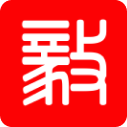Developer Success
2023-2025
The Developer Success team created tools and features to help developers achieve sustainable revenue on the Meta Quest Store, comprising marketing, monetization, and growth products. I supported the Affiliate Marketing, Referrals, Incentives, Pricing, Merchandising, MR Ads, Subscriptions, and Quest+ product teams.
Role
Design lead for Developer Success team, supporting 4 designers
Supported design work and co-led strategy for 8 product teams
Drove partnerships and alignment across developer and Quest Store-facing product teams
Featured Work
Short Links
The previous marketing attribution tool in Developer Dashboard had several drawbacks that prevented it from meeting developer needs and expectations:
It used UTM parameters appended to the destination URL that can be stripped
It used last click attribution that only tracked app entitlement, and did not track other purchases (e.g. bundles, add-ons) or activity (e.g. wishlisting, app sessions)
Dashboard included Meta-initiated campaigns on behalf of the developer, causing confusion
I designed Short Links to allow developers to generate Meta-branded shortened links for on-platform destinations (e.g. product detail page, app launch page). Developers can track clicks and conversion events on the platform with multi-touch attribution to understand where they should focus investments.
This tool was a success, with over 6,000 unique short links and 1,130 apps using the feature since its launch in November 2023. Internals tools and marketing teams caught wind of this project and had us create an internal version for them to track their own campaigns at scale.
Short link management
Rich Descriptions
PDP descriptions were restricted to plain text and developers frequently requested greater flexibility with formatting to communicate more clearly, accurately, and expressively, like they are able to on other platforms. Developers also attributed their lower sales on Quest versus other platforms due to this feature gap. This feature enabled the ability to add text formatting, images, and videos to their product detail page descriptions.
In partnership with one of my tech leads, we brought this proposal to Quest Store functional leads and after several rounds of debate, negotiation, and iteration, produced a design and testing plan that both sides could agree on.
PDP in headset
Open Sales
Developers were able to create their own promo codes and promotional sales, but were constricted by blackout dates when Meta is going to run a sale. In order to participate in a Meta-initiated sale, they had to be invited.
Open Sales democratized this model, allowing developers to enroll into all Meta-initiated promotional sales and promo code events, removing the blackout date restriction. This project also elevated the visibility of the Meta sales calendar and related invitations.
This was a significant milestone, marking the first time that developers could do so since the Oculus Store launched in 2015. Open Sales launched in July 2024, and 443 apps (~10% Quest ecosystem) participated through 2024, generating a total of $5.78M total payment volume and $618K in revenue, exceeding expectations by 5.8x.
Prepended Meta sales calendar
Developer Campaigns
Giving developers the ability to provide app trials helps them capture high intent users. However, they lacked tools to retarget users who’ve performed an action, such as starting or completing an app trial.
This project provided a scalable content distribution and re-engagement tool that can target users that perform a specific action with tailored content. This content could be in the form of a notification, post, or promotional code.
Campaign management
Other Work
I’ve also worked on overhauling the UX for Price A/B Testing, adding introductory offers and overhauling the UX for Subscriptions, added analytics to the Promotions tool, created proposals that cannot be disclosed until the products launch later this year, and a number of projects to support Open Store.




